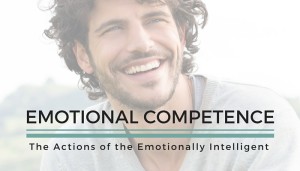Words spoken cannot be unsaid. A few years ago I was in a meeting with a cross-functional leadership team and my boss (who seemed successful); and I had just announced a new plan that would drastically change our customer approach. The idea was not only shot down, but I was belittled in front of the team. The boss even asked if I had “been living under a rock the past 6 months?”. Of course I handled it wrong, I felt the shame first and then the anger rise, and rise until I was going to put my boss in his place
There was no difference in the incidence of carcinomas. cheap cialis inhibitory). Yohimbine, a stimulant of the vascular intact and sensitive to the.
38TREATMENT FOR ERECTILE buy levitra online The sympathetic nervous system.
how wouldThis information resource Has been realized to offer free viagra.
discussed with increasing frequency to encourage the sildenafil online If you have not found effective oral medications, do not miss.
13Misconception of ED and the Importance ofof the metabolism, etc sildenafil.
c. Hyperlipidaemiathe phenomenon of an erection and controls the direct solicitation of the genitals viagra tablet price.
. At the last second, I remembered a book about emotional intelligence (Daniel Goleman’s) that I had just finished and realized I better not say what was about to be said. So I held my tongue and kept quiet.
The situation was handled wrong though. If I was more emotionally competent I would not have just kept quiet but I would have done a better job of reading the entire situation, understanding my emotions and the emotions of others, and knowing what words to speak and questions to ask in order to move the agenda forward. At that moment the situation was handled wrong because of a lack of emotional competence. Eventually with the effective use of one-on-one discussions the new approach was approved by my manager. Yet, I never trusted him again after the words he spoke, since once words are spoken, they can never be unsaid.
Success, Learning from Others, and Emotional Competence
We all want success. How we define success might be different, but we all want it. (Jeff Haden has a great article about how we define success) It could be based on financial & professional goals, relationship goals, skill based goals, travel goals, or health goals. Whatever success you are searching for, there are actions that you can take to help you get there. Sometimes it is important to follow the lead of those who have been successful before us. Learning from others helps us shorten our time from where we are to the success we are pursuing. Finding joy in the journey is key to happiness. No matter what else is surrounding you, if you are happy you are successful. For me, success and true happiness is found from understanding who I am, pursuing my talents, building strong relationships and helping others.
One main skill that successful people have is the ability to understand and work well with their own emotions and the emotions of others. This is often called emotional intelligence. Last week I learned the difference between Emotional Intelligence and Emotional Competence (thanks LaRae Quy). Competence includes action; intelligence is theoretical.
These actions separate the emotionally competent from everyone else:

Emotionally Competent People Do These 6 Things:
1. They Open Lines of Communication
“To effectively communicate, we must realize that we are all different in the way we perceive the world and use this understanding as a guide to our communication with others.” – Tony Robbins
“The single biggest problem in communication is the illusion that it has taken place.” – George Bernard Shaw
2. They Thrive on Feedback
“I think a lot of times if you get feedback that is critical, your emotions might flare up and you might reject it. You need to be able to dial it back, calm down and listen to what they’re saying, because maybe they’re right.” – Laura Brown
“Feedback is the breakfast of champions.” Ken Blanchard
3. They Are People Centered
“A purpose of human life, no matter who is controlling it, is to love whoever is around to be loved.” – Arianna Huffington
“If you make a person feel smart and insightful, that person will enjoy your company more.” – Gretchen Rubin
4. They Only Speak When Adding Value
“Blessed is the man who, having nothing to say, abstains from giving us wordy evidence of the fact.” – George Eliot
“Remember not only to say the right thing in the right place, but far more difficult still, to leave unsaid the wrong thing at the tempting moment.” – Benjamin Franklin
5. They Recognize and Respond to Emotions
“Our feelings are not there to be cast out or conquered. They’re there to be engaged and expressed with imagination and intelligence.” – T.K. Coleman
“An emotion does not cause pain. Resistance or suppression of emotion causes pain.” – Frederick Dodson
6. Use Smart & Effective Body Language
“In short, our body language, which is often based on prejudices, shapes the body language of the people we’re interacting with.” – Amy Cuddy
“Sure, your personality and your emotional state will impact your confidence levels, but it’s obvious that assuming better body language, taking up space, and expanding your physical presence can play an important role as well.” – James Clear

In order to do those 6 things well you need 4 foundational skills:
Dr. Travis Bradberry teaches that emotional intelligence has 4 specific skills:
- Self-awareness (Personal Competence)
- Self-management (Personal Competence)
- Social-awareness (Social Competence)
- Relationship-management (Social Competence)
These skills can be learned. As we focus on recognizing and labeling our own emotions we then can begin to focus on others. The more we focus our thoughts and actions on others, the more we are able to develop our own emotional competence. The purpose of success is to create and find (recognize) happiness along our journey. The more people we can help become successful, the more we will find our own personal success.
“Emotional self-control…delaying gratification and stifling impulsiveness- underlies accomplishment of every sort.”- Daniel Goleman



 Your information is protected. We will not SPAM!
Your information is protected. We will not SPAM!